Prince William admits 'hardest time is dinner time' with three children at home
Prince William has hinted at life at home with three children as he discussed the perils of dinner time during a video call.
William, 37, was due to be in Scotland this week in his role as Lord High Commissioner to the General Assembly of the Church of Scotland, but has not been able to carry out his regular engagements.
Instead, he made a series of calls to Scottish charities and revealed a bit more about life in lockdown in one.
He spoke to a charity in Glasgow that provides hot and healthy meals for vulnerable families and heard about how the team is helping to take the pressure off parents struggling during the pandemic.
Charlie Farrally, community chef, gave the duke a virtual tour of their food van and said: “You’ll know yourself, the hardest time is dinner time.”
Father-of-three William laughed and replied: “It depends what’s on the table.
“If parents put something on that children love, dinner time goes very well.
“But if you put something on the table they don’t want to do, that’s another ball game.”
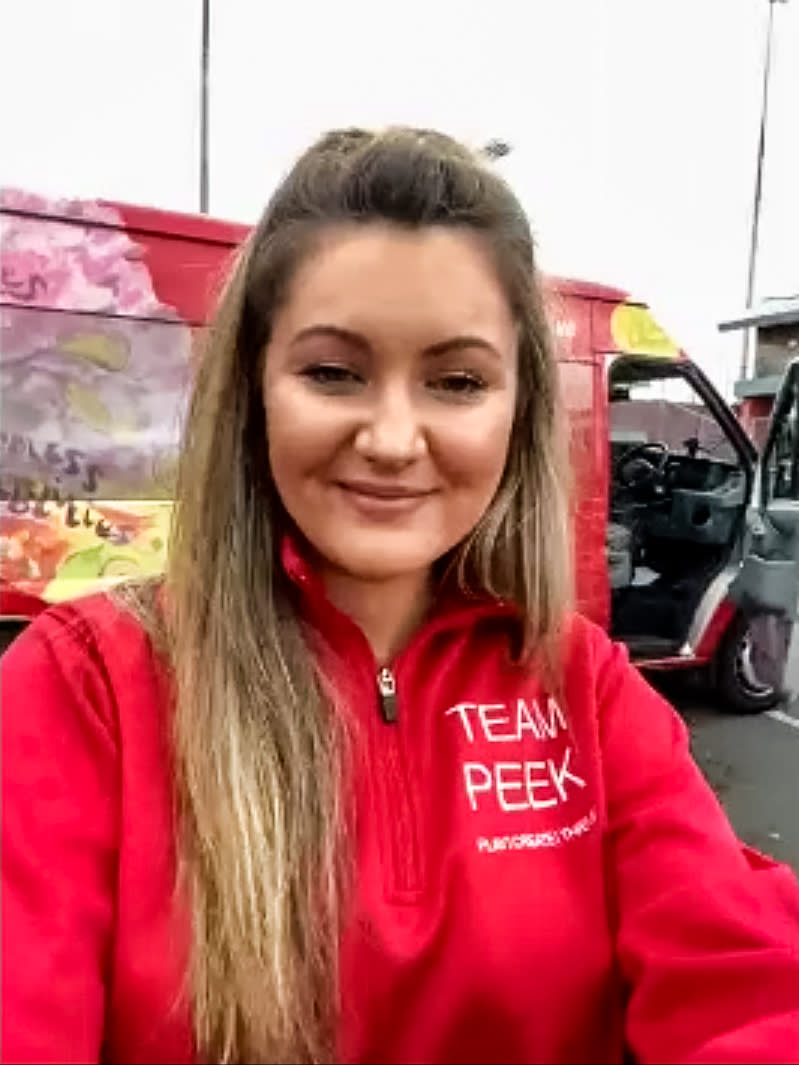
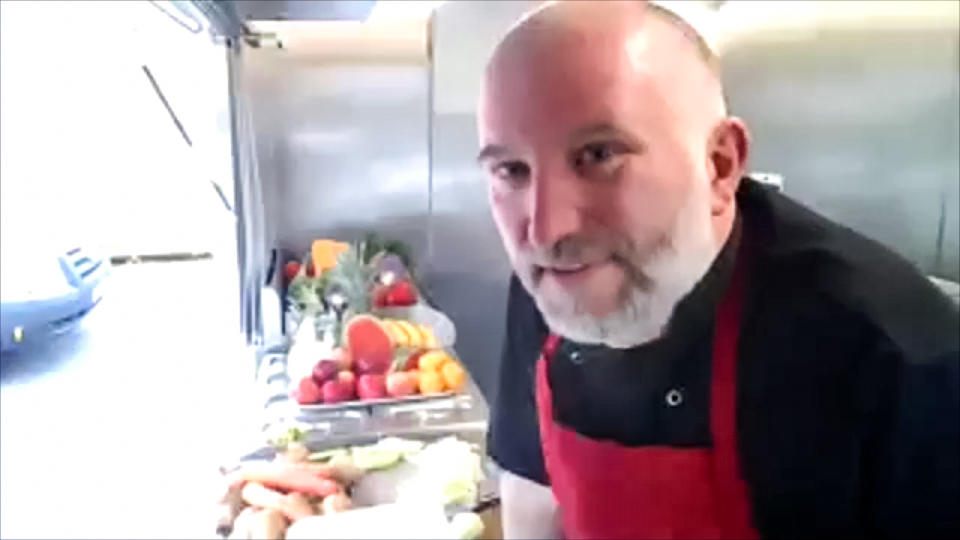
Farally, who made 900 meals in one day as part of the project, is part of the PEEK Project (Possibilities for Each and Every Kid). The truck has been named Peekachew by the children who are helped by it.
The Duke of Cambridge also spoke to Michaela Collins, who started visiting PEEK when she was nine, then became a volunteer and is now the chief executive.
“What a brilliant rise,” William said.
“I think that’s absolutely fantastic. You are the embodiment of what can be done.
“I hope when I find myself up in Glasgow in the near future I can come and see you guys in person and congratulate you.”
PEEK are one of the charities who have benefited from funding from the National Emergencies’ Trust coronavirus appeal, which the duke supported early on in the pandemic.
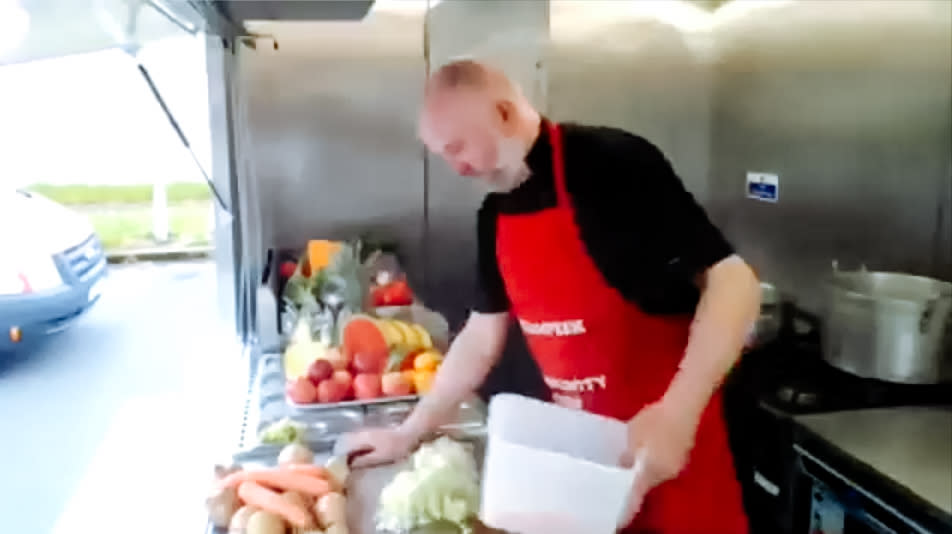
Through the funding they have been able to supply soap and sanitary products to families as well as food parcels.
William also spoke to Finding Your Feet founder Corinne Hutton, who was given a 5% chance of surviving sepsis in 2013 and had her hand amputated and legs amputated below the knee.
She’s gone on to become the first quadruple amputee to climb Ben Nevis, the first female quadruple amputee to climb Mount Kilimanjaro and the first Scot to receive a double hand transplant.
Also on the call with Hutton and William, was Stephen McAtamany, one of the charity’s beneficiaries, who had his left leg amputated below the knee in 1988 after a motorbike accident and now sports a leopard-print limb.
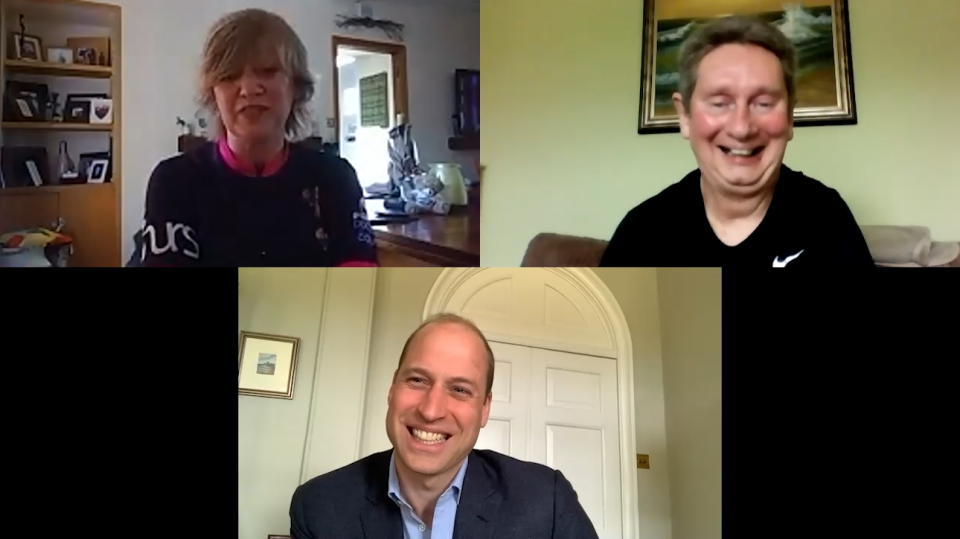
The 57-year-old spoke candidly about his own mental health, with William asking: “What was the biggest bit of support for you?
“One of the things we’re trying to encourage people to do is have that first conversation.
“For you, that first conversation with [counsellor] Michelle, did those dark clouds lift a bit?”
Mr McAtamany replied: “Being able to reach out initially to make that appointment was a massive step.
“A big burden was lifted right away.”
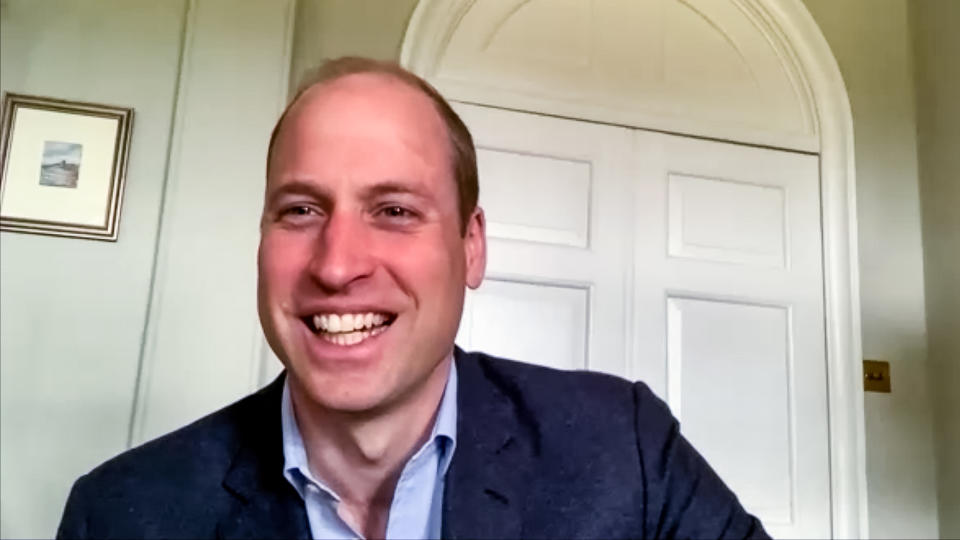
Speaking after the call, Hutton said: “To be told that Prince William would like to speak to us was just breathtaking.
“The fact that he has recognised and acknowledged the work we are doing and why it’s important is such incredible motivation.
“He listened carefully and had a genuine interest in what we do to help the amputee community. We also had a bit of a laugh and a good chat.
“It’s been the highlight of a tough year and I cannot thank all involved enough.”
On Wednesday William called some of the people who make up Lifelines Scotland, including Ambulance, Police, Fire and Rescue services and Scottish Mountain Rescue representatives.
He spoke to them about how they are working together to embed good mental health support across their services and tackle the stigma around getting support.
He thanked the organisations for their ongoing work during the pandemic.
Read more: How the royals tackle parenting
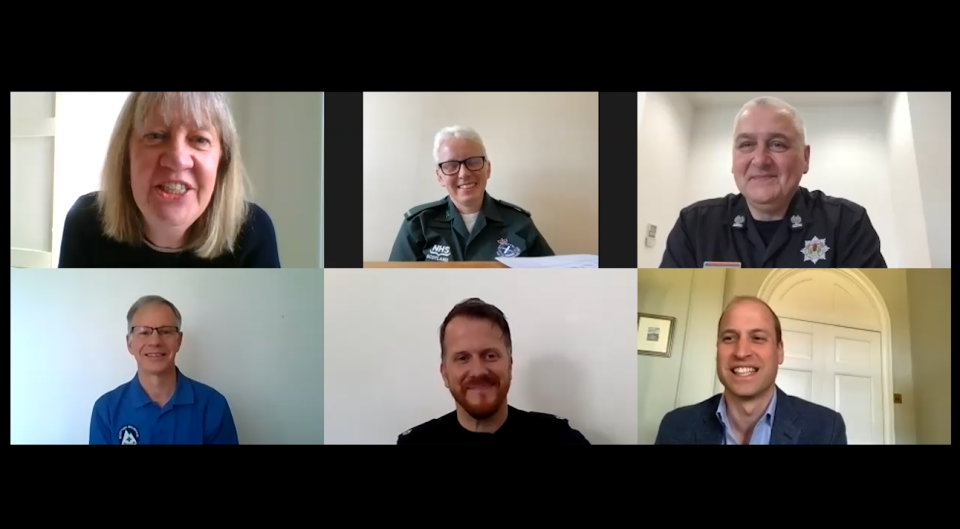
He also suggested there should be better mental health training from the beginning.
He said: “The training is not there from the beginning.
“So when you become a paramedic, when you become an emergency rescuer, when you become a police officer, when you are in the fire brigade, you know that mental health is absolutely at the core of what you do.
“In the same way that we all have checklists and flight reference cards and all these things that we follow to make sure we are not missing anything, that all the right procedures are done, we need to have the same thing with mental health.
“We need to have that moment.”
William flew helicopters for the air ambulance for several years before royal work took over.
On the call was Steve Penny, a mountain rescue volunteer, who said a documentary with William and Harry inspired him to speak about his mental health.
Speaking afterwards, he said: “We are taken away from our families or our employment at a moment’s notice to go and deal with something.
“That may be a very difficult case. Then we have to come in again and pick up where we left off.
“It is clearly a point of interest to [William], to make sure this understanding, education and support is available to everybody, not merely the emergency services but the volunteer services that come in behind that.
“He is very keen that volunteers are offered the same sort of support.”
Lifelines, founded in 2016, seeks to help organisations provide wellbeing support to volunteer emergency responders and blue lights workers.
In April the Duke and Duchess of Cambridge announced the good mental health of people on the frontline of the response to coronavirus would be their focus through the pandemic.
They launched Our Frontline, an initiative of resources which provides round the clock care for NHS workers, and any other key workers.


